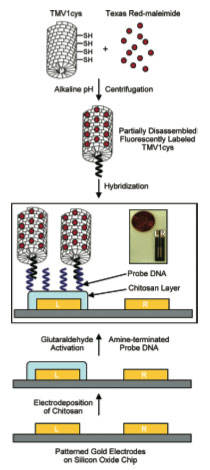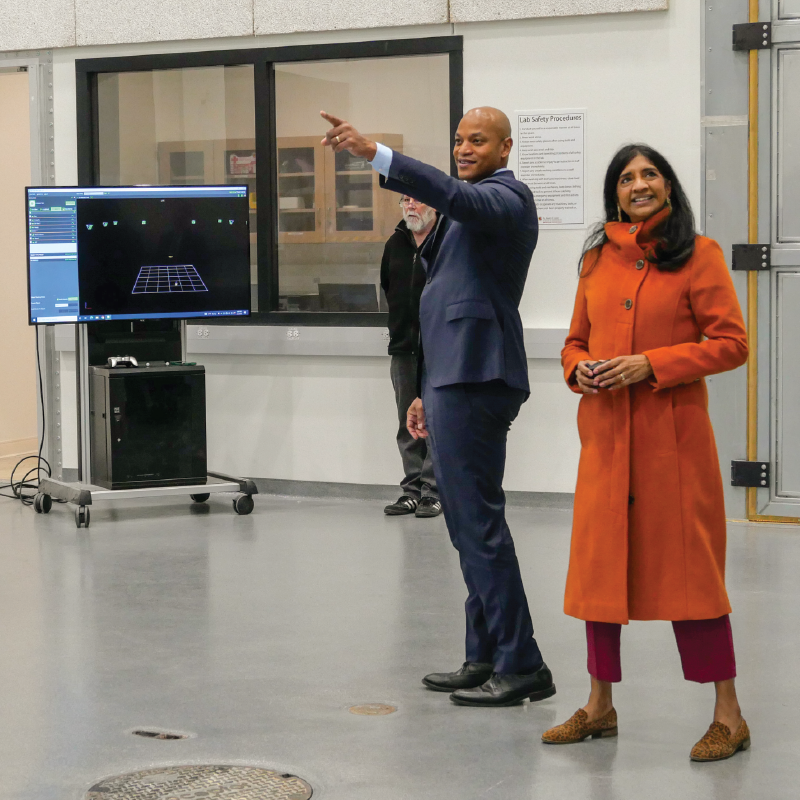News Story
Ghodssi Receives NSF Grant for Novel Nanofabrication for Energy Applications

Diagram for the DNA probe directed assembly of TMV1cys nanotemplates onto a readily addressable site. L and R represent left and right electrodes. Inserted picture shows an actual chip.
The objective of the research is to make use of the self-assembly and metal-binding properties of a biological nanostructure, the TMV, in the development of novel functional materials and fabrication processes for energy microsystems applications. The TMV is a high aspect ratio cylindrical plant virus that can be genetically engineered to include amino acids with enhanced metal-binding properties. These genetic modifications facilitate electroless plating of the molecules as well as self-assembly onto various substrates. The developed processes will be incorporated in the fabrication of new, nanostructured small-scale energy storage devices.
More information about the research can be found at the NSF website:
http://www.nsf.gov/awardsearch/showAward.do?AwardNumber=0927693
Additional information:
JMM Paper: http://www.ece.umd.edu/~ghodssi/ghodssi-pdf/Gerasopoulos_JMM_October2008.pdf
Nano Letters: http://pubs.acs.org/doi/pdf/10.1021/nl051254r
Published July 27, 2009









